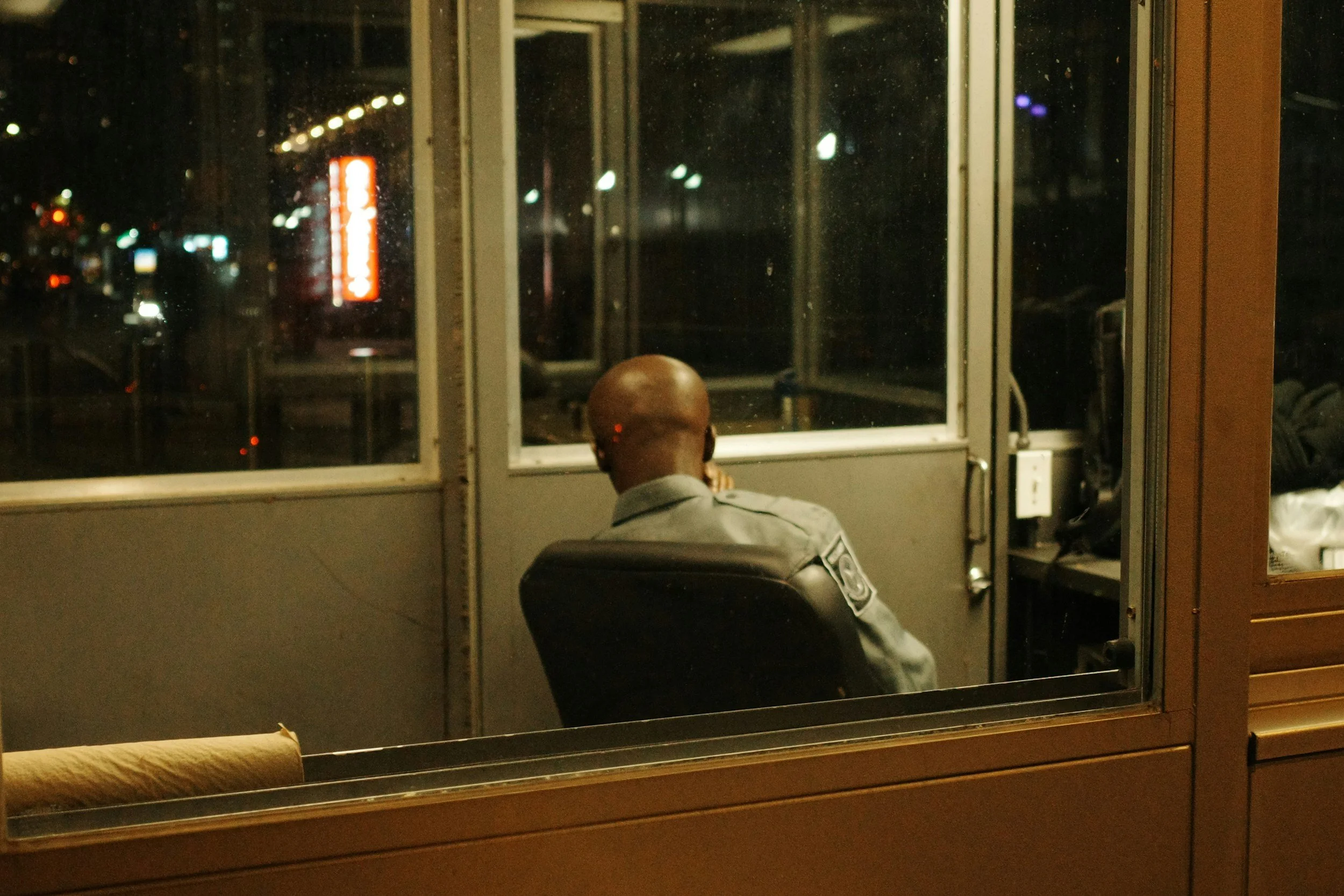A Personal Journal of Grace and Discipleship
“I have been crucified with Christ and I no longer live, but Christ lives in me. The life I now live in the body, I live by faith in the Son of God,who loved me and gave himself for me.” - Galatians 2:20

From the blog
The Exchanged Life: Finding Freedom and Wholeness Through Spirituotherapy
In a world filled with competing counseling models, it’s not uncommon to find contrasting views on what “biblical” or “Christian” counseling truly means. Searching for answers can feel overwhelming, and the terms alone—“biblical counseling” versus “Christian counseling”—can spark endless debates on how, or whether, secular counseling methodologies fit within a Christian framework.

Light In The Groaning Place
Romans 8 can read like sunrise, and then life can still weigh on the chest. Paul has just brought us into adoption and intimacy, Abba, Father, the settled love of God for His children. Then he turns and speaks about suffering. That move can unsettle us, because the heart wants a simple equation. If God is my Father, why does it still hurt like this. If I belong, why does my soul still groan.

Not on Probation: The Spirit of Adoption and the Cry “Abba, Father”
Have you ever noticed how easy it is to believe the gospel with your mind, and still approach God like you are on probation?
You know the right words. You can confess the right truths. You can even say, “I’m saved by grace.” And yet, when you come to God, something in you still flinches. It is as if you have access, but only if you perform. As if you are loved, but only on your best days. As if closeness must be earned, and peace must be paid for.

A New Address, Life And Peace In The Indwelling Spirit
There are seasons when a believer knows the truth, yet daily experience still sounds like Romans 7. Effort, collapse, guilt, repeat. It is not the language of someone who does not care. It is the weary language of someone who cares deeply, but keeps trying to live the Christian life from the wrong source. Romans 8 is God’s answer, not by handing us more willpower, but by revealing the Spirit of life who now dwells within everyone who belongs to Jesus.

When Comfort Becomes Noise
When I sit with Amos 4, I sense the discomfort of a message that refuses to whisper. This is a word spoken into ease, into comfort, into a life padded enough that the cries of others no longer interrupt sleep. God is not addressing people who think they have rejected Him. He is addressing people who believe they are close to Him, even proud of their devotion, while quietly ignoring the poor and exploiting the weak. The shock of this passage is not that God speaks strongly. It is that He speaks to people who think everything is fine.

Held In The Day Of Trouble
When I sit with Psalm 41, I hear the closing cadence of Book I of the Psalms, a stretch of songs shaped by weakness, illness, betrayal, and the quiet ache of being misunderstood. David is not writing from strength here. He is writing from a bed of affliction, surrounded by opportunistic enemies and wounded by the defection of someone he once trusted. Yet the psalm opens with a word that lifts the eyes before it names the pain. Blessed.

No Condemnation: The Life Of Christ In You
Romans 7 ends with a cry that many believers recognize immediately.
Wretched man that I am. Who will deliver me.
It is the cry of someone who loves what is right and yet cannot seem to live what is right. It is the ache of sincere desire colliding with repeated inability. It is not the voice of rebellion. It is the voice of exhaustion. And Paul lets that cry stand, not to shame us, but to expose the limits of self dependence.
Then something remarkable happens.

Why Romans 7 Happens: The Pain Of Self Dependence, And The Mercy Hidden In The Struggle
If you have ever read Romans 7 and thought, “That is me,” you are not alone.
There is a sound in Romans 7 that many sincere believers recognize immediately. It is the sound of someone who loves what is right, yet cannot seem to live what is right. It is the sound of inner conflict, not the conflict of a rebel shaking a fist at God, but the conflict of a believer who truly wants to honor Him and is tired of failing.
For some, Romans 7 has become a strange kind of companionship. It gives words to what many have been afraid to say out loud.

When Rest Begins to Reshape Alex’s Relationships
For a long time, Alex assumed that his inner struggle was his own private burden.
He tried to shield others from it. He believed that if he could just manage his anxiety and discouragement quietly, no one else needed to be affected. Relationships, he thought, would improve once he had himself under control.
What he didn’t realize was how much effort had been shaping the way he related to people.

When Rest Is No Longer Something Alex Tries to Enter
There was a time when Alex thought rest was something he would arrive at one day.
It felt like a destination just beyond reach. Something that would come after enough insight, enough discipline, enough progress. Rest was what faithful Christians seemed to have once they finally got things right.
That understanding quietly changed.

When the Pressure Returns: Alex in a Moment of Conflict
There was a season when Alex believed that if he could just get his thinking right, the rest would follow.
He knew what Scripture said. He knew how he ought to respond. And when temptation or pressure came, his instinct was always the same: tighten his resolve, review the right verses, and brace himself to do better this time.
That pattern worked for short bursts. It never worked for long.

When Scripture Becomes Life: Walking With Alex Into Romans 8
Alex did not come to faith because he was searching for God.
He grew up in Catholicism, but God was distant, abstract, and largely irrelevant. There was no sense of a personal God who knew him, walked with him, or spoke into the ordinary details of life. And for a long time, Alex didn’t feel any lack. Life was manageable. God, if He existed, was unnecessary.
That changed in his early thirties.

Scripture, the Spirit, and the Fear of “Mysticism”
One of the most common and sincere concerns I hear from friends trained in nouthetic or behavior-oriented counseling goes something like this:
“Where does the Bible fit in all of this talk about being led by Christ or yielding moment by moment? Without clear rules to follow, people will just follow any voice in their head they think is the Holy Spirit.”
I want to say at the outset: this concern is not foolish, dismissive, or careless. From within that framework, it is entirely reasonable.
The question is not whether holiness matters. The question is not whether Scripture is authoritative. The question is how Scripture functions in the lived Christian life.
That distinction changes everything.

When Glory Enters the Ordinary Night
Luke places the birth of Jesus not in a palace or a place of ceremony, but in the open fields outside Bethlehem, where shepherds are keeping watch through the night. These are men accustomed to darkness, danger, and long hours of vigilance. Nothing in their routine suggests that history is about to turn. And yet, it is precisely here that the glory of the Lord appears. The ordinary night becomes the setting for heaven’s announcement.

Alive to God Through Union
Romans 6:11 does not summon effort. It announces reality.
“So you also must consider yourselves dead to sin and alive to God in Christ Jesus.”
Paul is not telling believers to become something through striving. He is calling them to stand on what God has already accomplished through union with His Son.

When the Day Grows Quiet
As the day recedes, Scripture gives us language for what the heart longs for but cannot produce on its own. “In peace I will both lie down and sleep, for You alone, O Lord, make me dwell in safety.” This rest is not summoned by reflection or earned through awareness. It is received because God Himself is the Keeper of the night.

Raised With Christ: Your New Life —Romans 6:8–11
Romans 6 is not asking believers to do something. It is announcing something that has already happened.
That distinction matters more than we often realize, because even when good theology is presented clearly, many believers still carry a quiet sense of pressure. They hear truth, yet feel an unspoken demand beneath it. They agree with the doctrine, but their souls remain tense.
Part of the reason is that teaching on death with Christ, though essential, can sometimes stop too soon.

When Obedience Flows From the Wrong Source — An Interlude Before Resurrection Life
Before we move into Romans 6:8–11 and the language of resurrection life, it is wise to pause. Not to slow progress, but to clear away a confusion that often rises quietly in the hearts of sincere believers.
Whenever God’s finished work is emphasized, whenever rest in Christ is spoken of with clarity, a familiar question often surfaces.
“So am I supposed to work out my salvation?”

United With Christ: Your Death in Christ — Romans 6:5–7
In Romans 6, the Apostle Paul is doing something that is often missed by well-meaning readers. He is not urging believers to greater effort. He is not motivating obedience through pressure. He is not outlining a strategy for moral improvement.
He is revealing something that has already taken place.
This matters because many believers spend years trying to live the Christian life without ever understanding what God has already done to make that life possible. The result is often sincere striving paired with quiet exhaustion. Growth feels slow. Victory feels fragile. Assurance feels conditional.

The Abiding Life: Why We Cannot Live the Christian Life by Trying —Romans 6:1–4
Many sincere believers reach a settled conclusion after years of following Christ, though few say it out loud. The Christian life feels harder than it should.
What begins with joy often settles into a cycle that looks like faithfulness but feels exhausting. Determination gives way to disappointment. Disappointment gives way to rededication. Rededication gives way to discouragement. The problem is not a lack of sincerity. It is not a lack of discipline. It is not a lack of desire to honor God.
The problem is deeper.
We have tried to live a life that was never meant to be lived by us.

When the Shadow Gives Way to the Substance
The opening of Hebrews 10 invites us to slow down and face a reality we often avoid. For generations, God’s people lived under a system that reminded them of sin without ever removing it. The sacrifices repeated year after year did not cleanse the conscience. Instead, they kept bringing guilt back into view. The very rhythm of worship carried a quiet ache. Something was missing, and everyone knew it.


